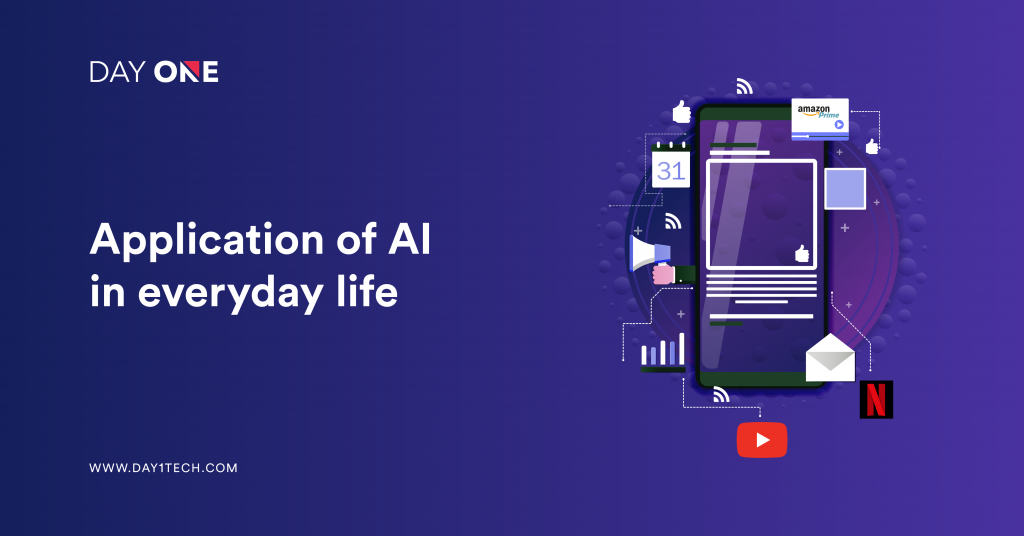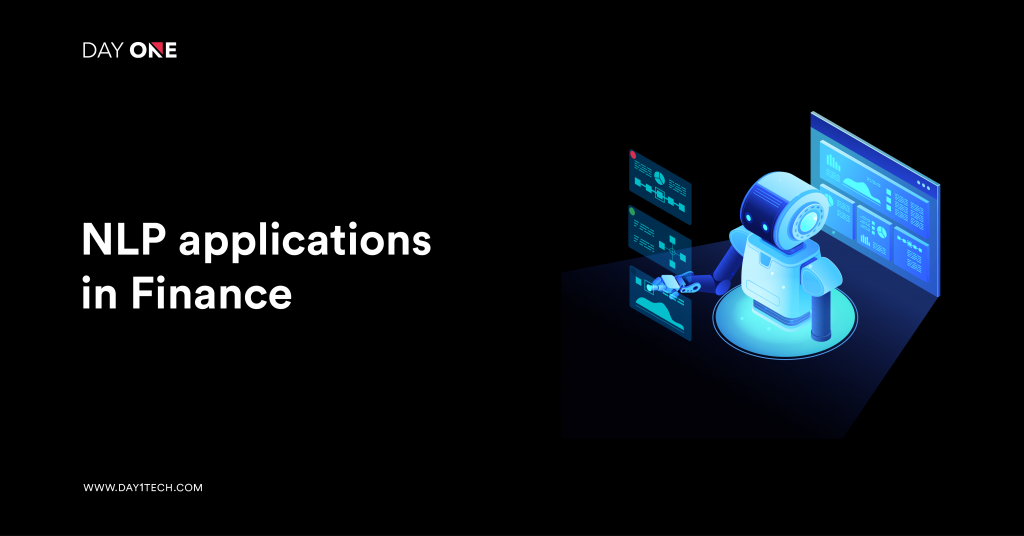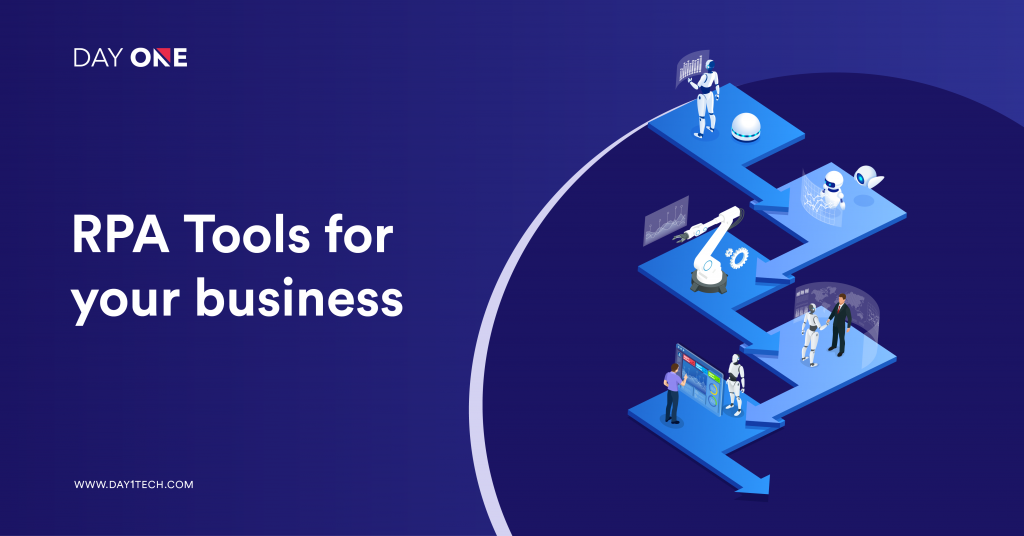Everyday AI applications: How your invisible friend is impacting daily life
admin
Artificial Intelligence
June 1, 2021
4 min read

With the popularity of AI-powered smartphones, it is unlikely that users are unfamiliar with how AI impacts everyday life. Artificial Intelligence is more than a buzzword and its impact is being witnessed across all facets of life. For instance, here’s an instance of a daily life example of Artificial Intelligence:
When surfing for music/videos on YouTube or watching a movie on Netflix, one can easily find ‘recommendations’ based on previous searches/playlists. This is the most basic use of artificial intelligence. Based on user search and usage behavior, AI detects a pattern and makes recommendations based on it. A strong AI application can make better recommendations that prompt further action, whereas a basic AI platform will make recommendations that compliments but does not fit the user’s needs. This is where an AI service provider can assist in building custom business-specific solutions.
And while that’s a very simple example of everyday uses of AI, there’s more than the deep tech is doing for personal lives and the business world.
So, let’s take a look at some of the ways Artificial Intelligence is changing real-life scenarios/activities?
Where do we use AI in everyday life? AI application uses, examples and use cases
In a study carried out by PEGA, it was found that almost 77% of consumers use AI-powered services. Simple actions like using chat options for communicating with a brand or using voice assistants for searches are examples of everyday applications of AI. But in spite of AI touching human lives on a daily basis in a myriad of ways, most often don’t realize how close their round-the-clock activities are factored by artificial intelligence. In fact, in the same research by PEGA, only 33% of consumers thought they use AI for regular life.
Here are some popular ways of the confluence of modern lifestyle and AI:
- AI used in transportation: Applications like Uber, Lyft, etc. are the best examples of the use of AI in commuting. Ridesharing and navigation apps use AI to update routes in real-time. Aside from using core A I for route selection, related deep tech, namely machine learning is used to further add value to the service such as calculating the estimated time of arrival.
- Role of AI in e-commerce: If there is one sector where the latest artificial intelligence applications can be vividly seen and experienced, it is e-commerce. From Amazon to Alibaba, eBay, etc. the world of online shopping has taken a 360-degree turn with the onset of AI especially through AI in mobile applications. In this respect, interactions formed using NLP also contribute especially in voice search, spell check, setting filters, etc.
From conducting a quick, related search, to making product recommendations based on search patterns, to providing security from fraud (especially for payments), the implications of good AI has added value to the e-commerce sector to a great extent.
- Real-world applications of AI in Healthcare: The healthcare sector is in need of a massive makeover. From towering medical costs to a lack of skilled resources, the healthcare industry is facing a wave of challenges and setbacks that can be reduced to a great extent with the application of artificial intelligence.
Artificial intelligence and machine learning solutions can be used to help pathologists make more accurate diagnosis, early detection of illnesses like cancer, etc., analyze tissue samples, facilitate patient record keeping, safeguard patient diagnostics and health details, streamline processes for payments, maintain schedules for medical professionals (namely doctors), etc. The daily applications of AI in the medical field, not only helps to save on time and money but also delivers timely and accurate results for faster treatment and decision making.
A discussion on the examples of artificial intelligence software in healthcare mandates a discussion on the use of AI in powering wear tech. The wearable medical device market is projected to reach US$ 14.41 billion by 2022 (Source: Markets & Markets) a lot of it impacted by the rise of AI in wearable apps especially in fitness-based healthcare gears.
- Finance, banking and insurance, and AI applications: AI-enabled systems and software serves as the backbone of the financial sector. Considering the level of security, accuracy, and efficiency the sector is required to maintain 24×7, Artificial Intelligence-powered robots are the perfect tool for the job.
Financial institutions are aggressively investing in AI, often by partnering with top AI solutions companies to build customized platforms to cater to their diverse needs. For instance, AI platforms and tools are being deployed to perform functions like recommending investment options for stocks and/or products, preventing online fraud, facilitating mobile check deposits, assisting loan approval processes and credit decisions, etc.
For instance, AI-powered chatbots using NLP, as a platform for initiating loan processing, are proven real-life use cases in the financial sector. In China, for instance, OCBC Bank’s chatbot Emma has been programmed to help users with all their queries related to loan processing, borrowing, etc. The contribution of Emma as a non-human tool is commendable considering that as per reports it has helped the bank by turning almost 10% of its interactions into loan applications (Source: chatbots magazine).
- AI in social media: How is everyday life improved with AI? The question can be answered at its best by considering the example of AI applications in social media. When using platforms like Facebook, for instance, AI-powered face recognition tools are employed; on Instagram, location-search is activated; in Snapchat, filters are used to track facial movements to add digital edits/masks, etc.
The question here is: Is AI affecting everyday life? And the answer is in the affirmative. AI tools are making life simpler; by tracking behavior and pattern-based data, it is predicting future action, that not only quickens actions but also opens up new business opportunities.
Why use AI in real life?
It goes without saying that regular human life is significantly impacted by artificial intelligence. From setting reminders to playing games to doing analytics, or using surveillance and maintaining a smart home, artificial intelligence is the non-human with a powerful impact on human life.
Of course, there are certain ways in which the level of dependency on AI is being questioned, one cannot deny the benefits it brings to the table.
Explore More Blogs
Testimonials What customers have to talk about us
Finch (previously Trio) – Growth with Investing, with benefits of Checking
Reading Time: < 1 minThe Finch (previously Trio), one of our clients today has reached this level with our expertise and with a great team of developers in Day One, who have made every stone unturned in making this project a big success.
Neel Ganu Founder
USA
Vere360 – VR based Immersive Learning
Reading Time: < 1 minDay One helped Vere360 “fill skill gaps” and build a platform that would cater to their niche and diverse audience while seamlessly integrate the best of #AI and #VR technology.
Ms. Adila Sayyed Co-Founder
Singapore
1TAM – Video Blogging Reimagined
Reading Time: < 1 min‘1TAM’ was only for iOS with gesture-based controls, advanced video compression techniques, and a simple architecture that allowed actions to be completed in 2-3 taps. The real challenge for ‘1TAM’ was to keep it distinct which bought brilliant results with all the strategies and approaches implied for best video compression techniques.
Anwar Nusseibeh Founder
UAE
Fit For Work – The Science of Workplace Ergonomics
Reading Time: < 1 minDay One Technologies came with the expertise that was required and helped in building a platform that is edgy, functional, and smart, delivering engagement and conversions at every step.
Ms. Georgina Hannigan Founder
Singapore
SOS Method Meditation for ‘Busy Minds’
Reading Time: < 1 minDay One Technologies helped in building an innovative mobile app (for #iOS and #Android) that’s easy-to-use, engaging, and data-driven to help users reap the most at every point.






